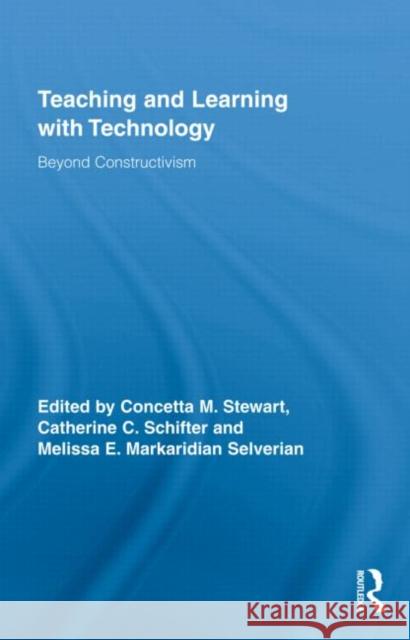Teaching and Learning with Technology: Beyond Constructivism » książka
Teaching and Learning with Technology: Beyond Constructivism
ISBN-13: 9780415878500 / Angielski / Twarda / 2010 / 294 str.
Teaching and Learning with Technology: Beyond Constructivism
ISBN-13: 9780415878500 / Angielski / Twarda / 2010 / 294 str.
(netto: 788,12 VAT: 5%)
Najniższa cena z 30 dni: 755,61
ok. 16-18 dni roboczych.
Darmowa dostawa!
Today, new media is both augmenting and extending the traditional classroom with a variety of technology-based tools available to both students and faculty, and has created "new" virtual classrooms for anywhere, anytime availability to education. Despite the enormous potential for technology to support the educational enterprise in this emerging "creative" economy, technologies are still not yet fully integrated in the classroom and their association with educational outcomes is as-yet unclear. This book profiles scholarly work from around the world to examine closely the effectiveness of the newest media in education at bridging the gaps among and between teachers, students and subject matter at all levels, from K-12 through adult education. These pieces are theory-based investigations with implications for future research, theory and application. Contributors examine how the fields of education and new media have evolved and are continuing to evolve pedagogically and practically, from predominantly instructivist, with a passive, one-way teaching format; to constructivist, including teacher- and learner-controlled, sensorially immersive and socially interactive exchanges. This book will be of interest to students and faculty in the areas of new media in education, including distance learning, online learning and "virtual" learning.
Today, new media is both augmenting and extending the traditional classroom with a variety of technology-based tools available to both students and faculty and has created "new" virtual classrooms for anywhere, anytime availability to education. Despite the enormous potential for technology to support the educational enterprise in this emerging "creative" economy, technologies are still not yet fully integrated in the classroom and their association with educational outcomes is yet unclear. This book profiles scholarly work from around the world to examine closely the effectiveness of the newest media in education at bridging the gaps among and between teachers, students and subject matter at all levels, from K-12 through adult education. These pieces are theory-based investigations with implications for future research, theory and application. Contributors examine how the fields of education and new media have evolved and are continuing to evolve pedagogically and practically, from predominantly instructivist, with a passive, one-way teaching format; to constructivist, including teacher- and learner-controlled, sensorially immersive and socially interactive exchanges. This book will be of interest to students and faculty in the areas of new media in education, including distance learning, online learning and "virtual" learning.











